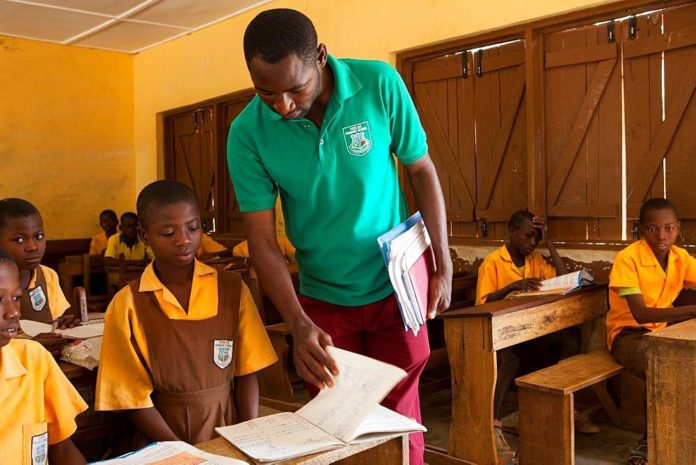Teachers unions within the basic education sector have threatened to fiercely resist the directive issued by the Ghana Education Service (GES) to change the trimester to a semester-based academic calendar.
According to the unions, such a“major policy change” by the GES should have attracted a wide consultation with the unions. They stated that due to the independent decision taken by the Service, it finds the “pronouncement” and document “offensive” and takes exception to them. The unions consisting of NAGRAT, GNAT, TEWU and CCT-GH in a joint statement revealed that they will oppose the policy if the government fails to withdraw its decision.
“We, therefore, call on the GES to immediately withdraw the policy, pending full consultations with the Unions in Education and other major stakeholders and to serve notice, that failure to do so would be resisted fiercely… We state emphatically, that at no point in time were the Unions in Education consulted on such a major policy decision… Per our Collective Agreement with regards to our working conditions, major policies such as this should come for discussion and negotiation”.
Teachers Unions
The unions outlined some major issues “emanating” from the unilateral decision by the Ghana Education Service. It explained that the hours workers in education are required to work have been a “bother” to unions especially when “instructional” and working hours have been increased unilaterally without discussion and negotiation with the unions.
As educators, they reckoned that thorough discussion will bring to the fore effects of a long school calendar on both teaching and learning as well as the health of both workers and learners.
“The unions in education sees the decision taken to unilaterally change the school calendar into a semester, one as arbitrary and an imposition by the GES on major stakeholders, of which the Unions in Education are part”.
Teachers Unions
Prior to this, the Ghana Education Service announced the introduction of a semester-based academic calendar for public Kindergarten, Primary, and Junior High Schools. Among other things, GES noted that the new system will help ease pressure on teachers and help align academic calendars.
The Service indicated that the newly-introduced semester-based academic calendar for public Kindergarten, Primary, and Junior High Schools has come to stay.
Why GES pushed for new academic calendar policy
Deputy Director-General for Quality and Access of the Ghana Education Service, Dr. Kwabena Tandoh, revealed that based on research, one of the causes of classroom absenteeism among teachers in the various schools was because some teachers sought to upgrade themselves. He explained that due to this, the “three-term system” in the basic schools overlaps with the university system.
“Gradually, we are getting to the point where we can align. We are giving teachers the time, by aligning their system with the university systems to upgrade if need be.”
Dr. Kwabena Tandoh
According to him, recent research in Greater Accra showed that because primary schools had a different calendar from the Junior High Schools, parents could not align. Dr Tandoh intimated that for the reason that primary school children had a different timetable from the Junior High Schools when the latter was in session, attendance went down by 11%.
Dr Tandoh indicated that the basic school students, per the new arrangements, will spend 40 out of the 52 weeks in a year in the classroom.
“When we were doing the term system, they were in school between 13 and 15 weeks per term. In this system, they will only be in school for not more than 10 weeks per time. This initial one is only because we are trying to align the timetables”.
Dr. Kwabena Tandoh
READ ALSO: A Lot Needs To Be Done on Electoral Violence Sensitization- Paul Mensah





















